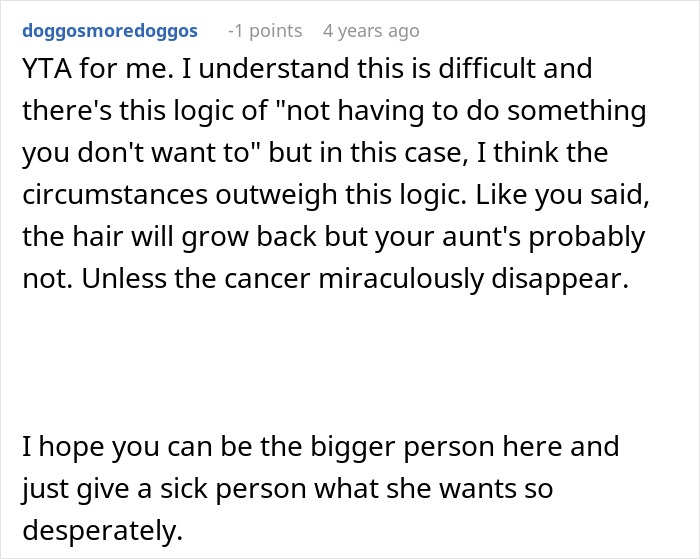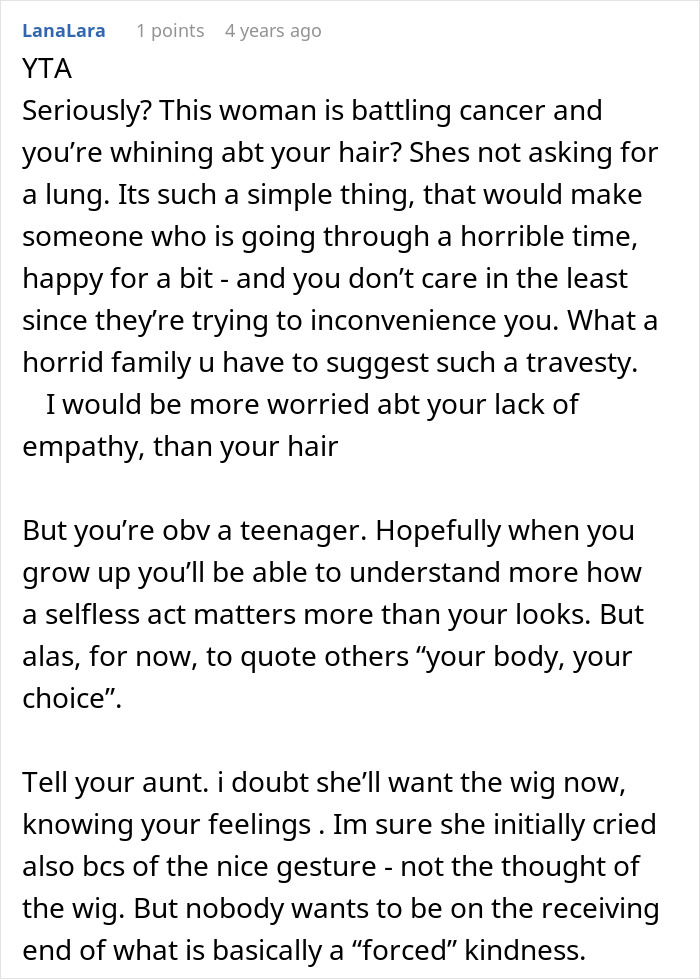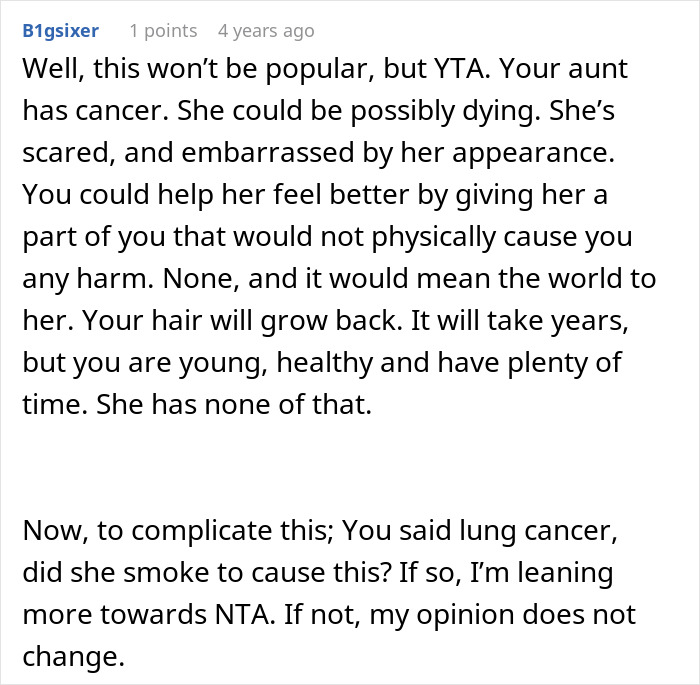My entire life, red hair has been a defining part of my identity. Strangers want to know if it’s natural, hair stylists make me promise that I’ll never dye it another color, and according to my mother, people often asked if they could touch it when I was a baby. But regardless of what color or texture of hair you have, it’s natural to become emotionally attached to it.
That’s why one teen became extremely upset when her mother suggested that she chop off all of her gorgeous locks and donate them to her aunt who has cancer. Below, you’ll find the full story that was posted on the “Am I the [Jerk]?” subreddit, as well as conversations with Suzanne Chimera, Co-Founder of Hair We Share, and Martino Cartier, Founder and CEO of Wigs and Wishes!
This teen takes pride in her long, healthy hair

Image credits: Gabriel / unsplash (not the actual photo)
But now, her family is pressuring her to chop it all off to create a wig for her aunt
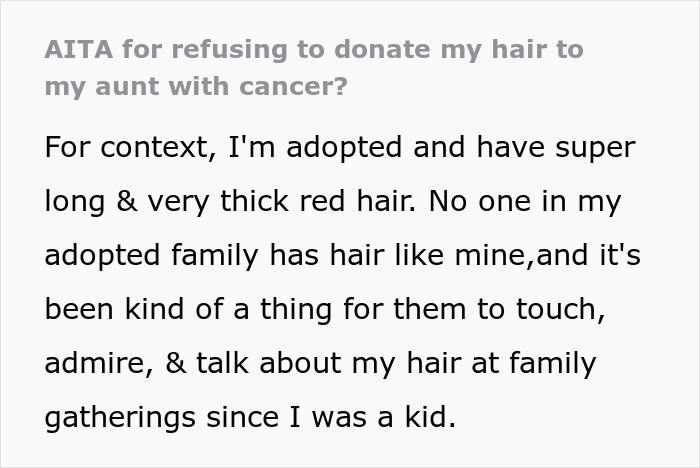
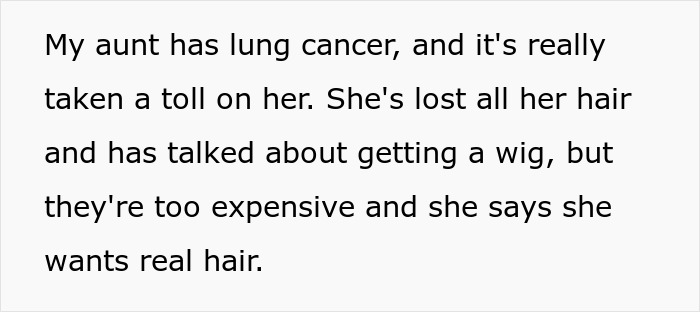


Image credits: Enzo Tommasi / unsplash (not the actual photo)
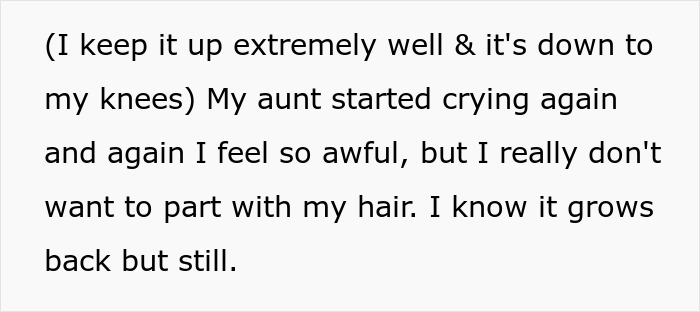
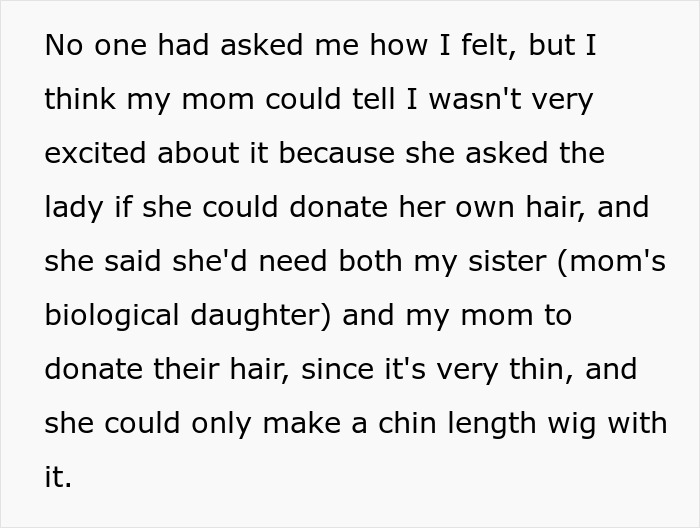
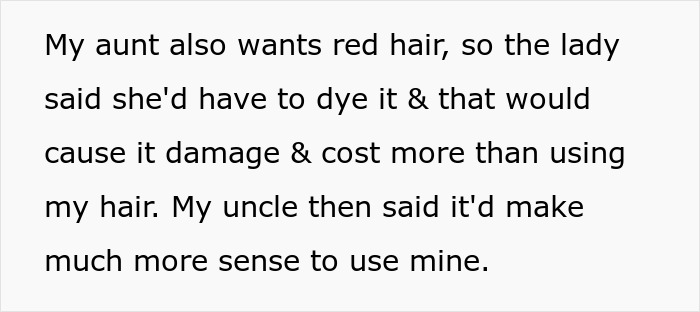
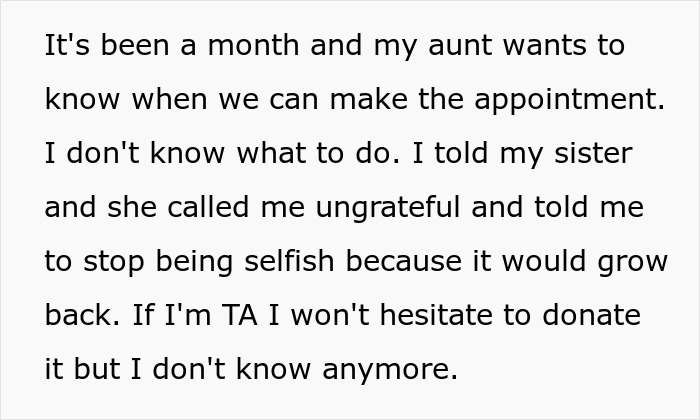

Image credits: Amir Esrafili / unsplash (not the actual photo)
The teen also added some clarifying details later

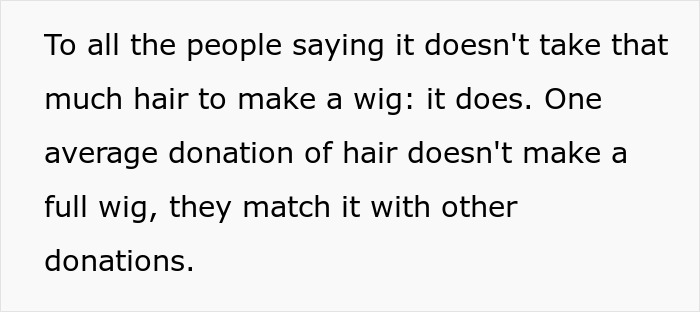
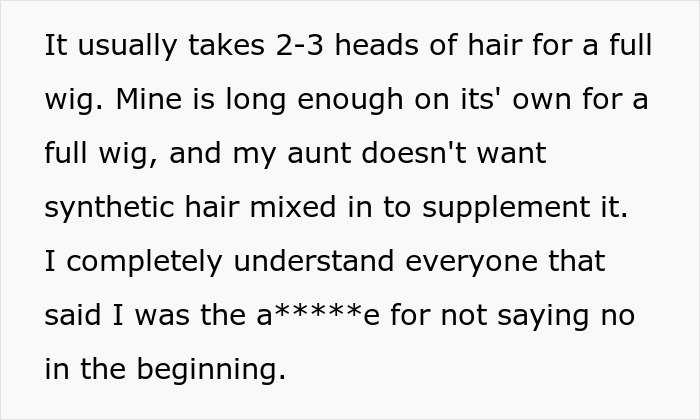
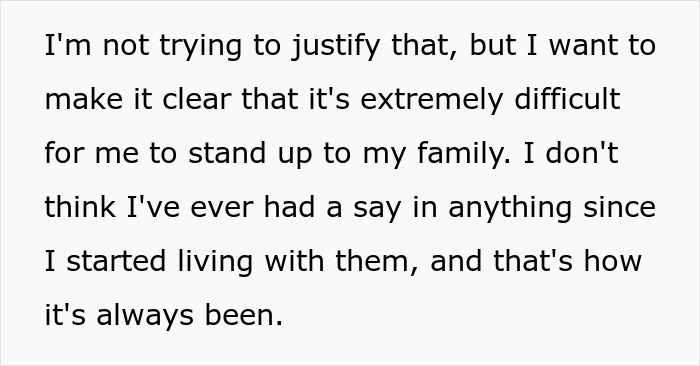
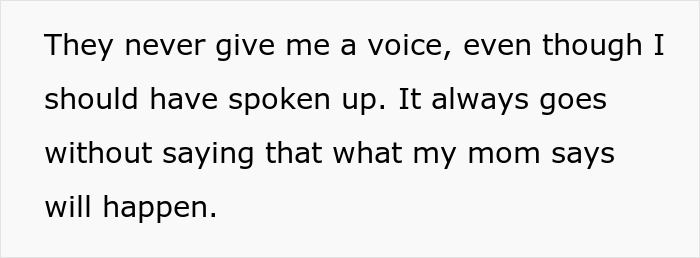
Image credits: donatehairthrowaway
Hair can be a major part of a person’s identity
We all know that hair grows back (well, usually), but that doesn’t stop us from becoming very emotional about it. Have you ever cried after getting a bad haircut? (Guilty.) Or chopped off your locks after a dramatic life change? (Also guilty.) For many of us, hair is inherently linked to our identities, and we use it to express how we’re feeling in that moment or season of life.
Because we’re so attached to our hair, it’s no surprise that hair loss, especially when unexpected, can bring a host of psychological effects. DermNet reports that hair loss can cause intense emotional suffering, anxiety, depression, social phobia or even a paranoid disorder. So it’s understandable that those who lose their hair due to health issues or chemo might be interested in getting a wig.
To find out more about the process required to create a wig out of human hair, we reached out to Suzanne Chimera, Co-Founder of Hair We Share, who was kind enough to have a chat with Bored Panda.
Suzanne shared that a minimum of 8 inches of hair is needed to create a wig. “The reason is that the hair is folded (by at least 4″) to be sewn. It takes about 5 hair donors to make one wig,” she explained. “The hair is put through a ‘hackle,’ it’s basically a bed of nails that the hair is whipped through, the weaker hairs break off and we are left with only the strongest, best quality hair. This will help the wig to last longer.”
“Normally it takes about 2 months to complete one wig,” Suzanne added. “Because we have received an enormous amount of donations since the start of the pandemic, our production line is currently backed up by 2 years.”
“There are no words to describe the joy you see on a woman’s face when she is gifted a wig when facing cancer”

Image credits: Karolina Grabowska / pexels (not the actual photo)
We were also lucky enough to get in touch with Martino Cartier, Founder and CEO of Wigs and Wishes, to hear his thoughts on the topic. “It takes more than one hair donation if someone is just donating ponytails to make a wig,” he shared. “It takes a number of them, and it takes many weeks to make them.”
And there’s no question that a wig can have a huge impact on a cancer patient. Suzanne says that often one of the first questions people ask when diagnosed with cancer is, “will I lose my hair?”
“Our hair is our identity. It is often the first thing other people will identify us with,” she told Bored Panda. “When going through cancer treatment, most people don’t want sympathy. They want to go about their life without people staring.”
“I have been to funerals where the deceased is wearing the wig we provided them. I have had mothers thank me in front of their children’s coffin, telling me how the wig made them feel whole,” Suzanne shared. “We have provided wigs to people who are in hospice, even at the end-of-life people want to feel like they look like themself, not only for themself but for their family.”
Martino also says that the impact of providing nearly 25,000 free wigs every year is immeasurable. “You’re giving them their freedom and dignity back,” he shared. “We have a quote: ‘looking cancer free for free.’ There are no words to describe the joy you see on a woman’s face when she is gifted a wig when facing cancer.”
We were also curious if it’s actually necessary for someone to chop off their hair, so an ill loved one could have a wig. “There is never a reason to sacrifice your hair if you don’t want to,” Suzanne says. “We have seen teens and children in tears over their hair cut because someone told them ‘cut a few inches more and you can donate it!’ making them feel pressured.”
“A hair donation should come from the donor and not be anyone else’s decision,” she continued. “We have no shortage of hair donations and thousands of wigs within our inventory, and most times can deliver one within a few days. There are wig shops in every community and plenty of websites to purchase a wig from.”
“A hair donation should come from the donor and not be anyone else’s decision”
Martino also noted that synthetic wigs have come a long way in terms of quality. “Wigs of today are not the wigs of yesterday. Today, you can get a heat-friendly (meaning it can be curled, flat ironed and heat-styled) synthetic wig that’s much cooler, lighter, and sometimes even more natural looking than a human hair wig,” he explained.
“They are completely see-through so that you can see the patient’s scalp right through the wig, making them undetectable,” Martino continued. “If you or someone you know is battling cancer, go to wigsandwishes.org. We provide free wigs and accept donations for those wigs, so we can continue to provide them to women all across the United States. We also wish for children battling this horrible disease.”
Suzanne shared with Bored Panda that Hair We Share’s number one request is someone looking to have their hair made into a wig for a specific person, but this isn’t realistic. “We do not do this for cancer patients. It takes too long to produce the wig, and we don’t like to make our recipients wait,” she explained.
“Often the person wanting to do this is because they don’t know what else to do for their loved one, they feel giving a piece of themself is the ultimate gesture (and it is an amazing gesture),” she explained.
“It’s similar to what happened during Covid. At the beginning of the pandemic, we had a flood of inquiries in regard to donating hair. I think it is human nature to want to help others. People were at home, unable to go out for haircuts, and as their hair grew, they realized they could donate it and help others,” Suzanne continued.
But the manufacturing process is tedious and costly. “Although we give wigs free of charge, it does not mean they are actually free,” the expert says. “Monetary donations are more important to our program than hair. We have an ongoing phrase we use in our office ‘there is no magical unicorn that flies through and turns the hair into a wig.’”
Later, the teen responded to a few questions from readers and provided more background information
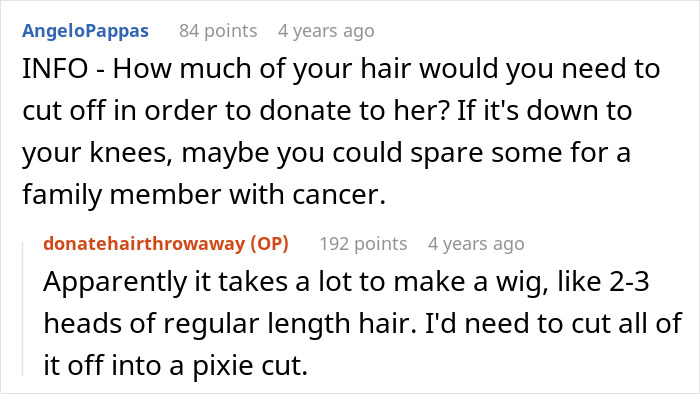
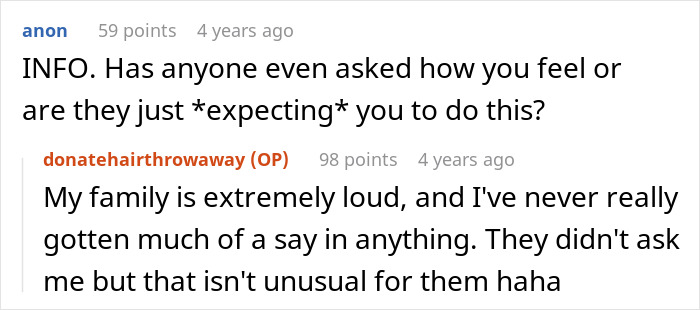
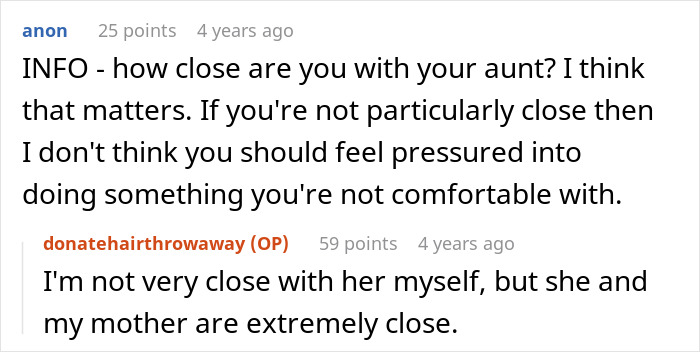
Many readers assured her that she had every right to keep her hair
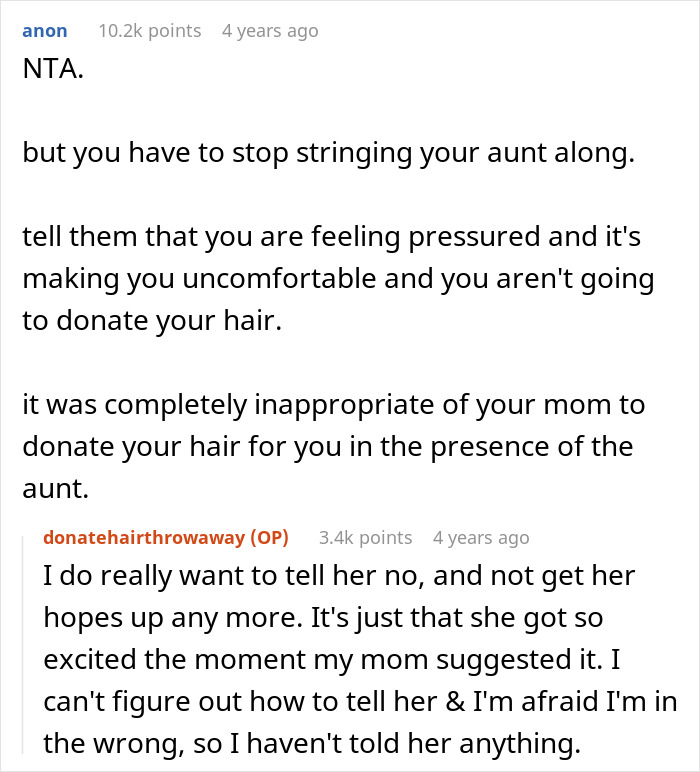
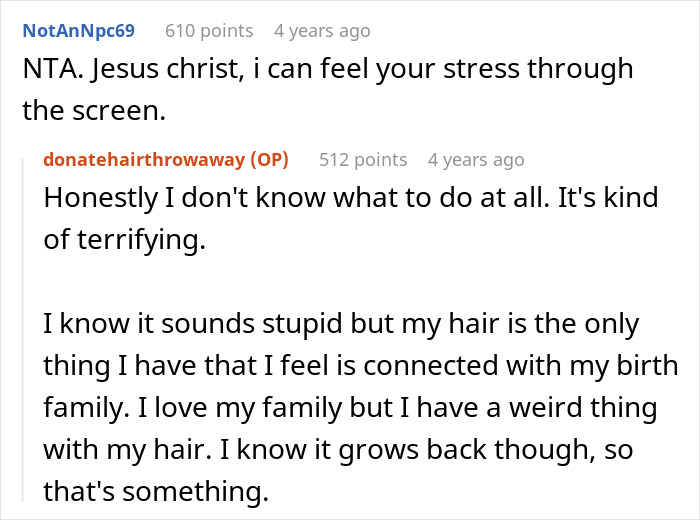
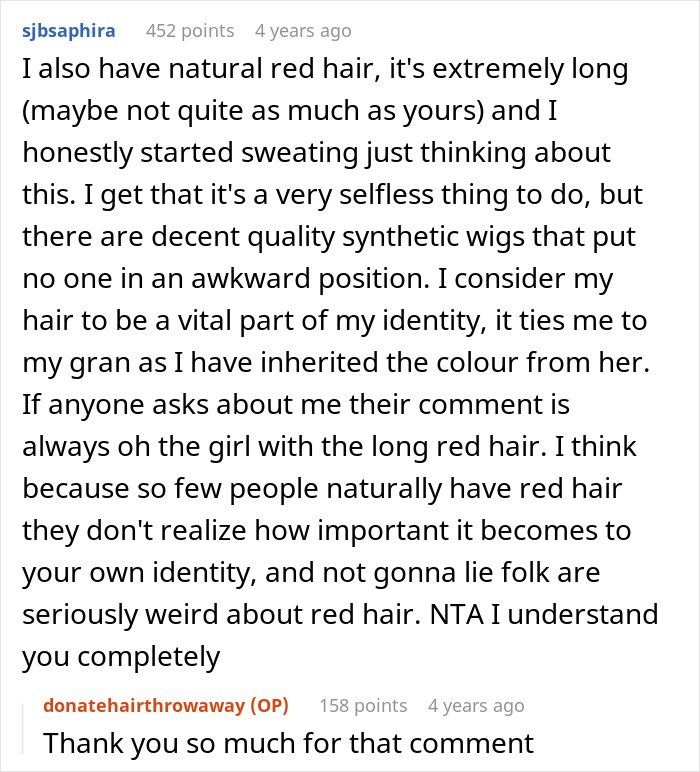

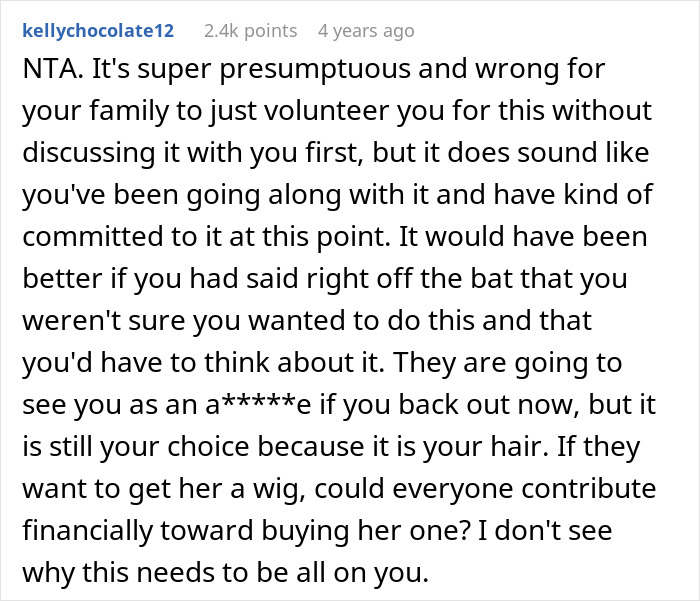
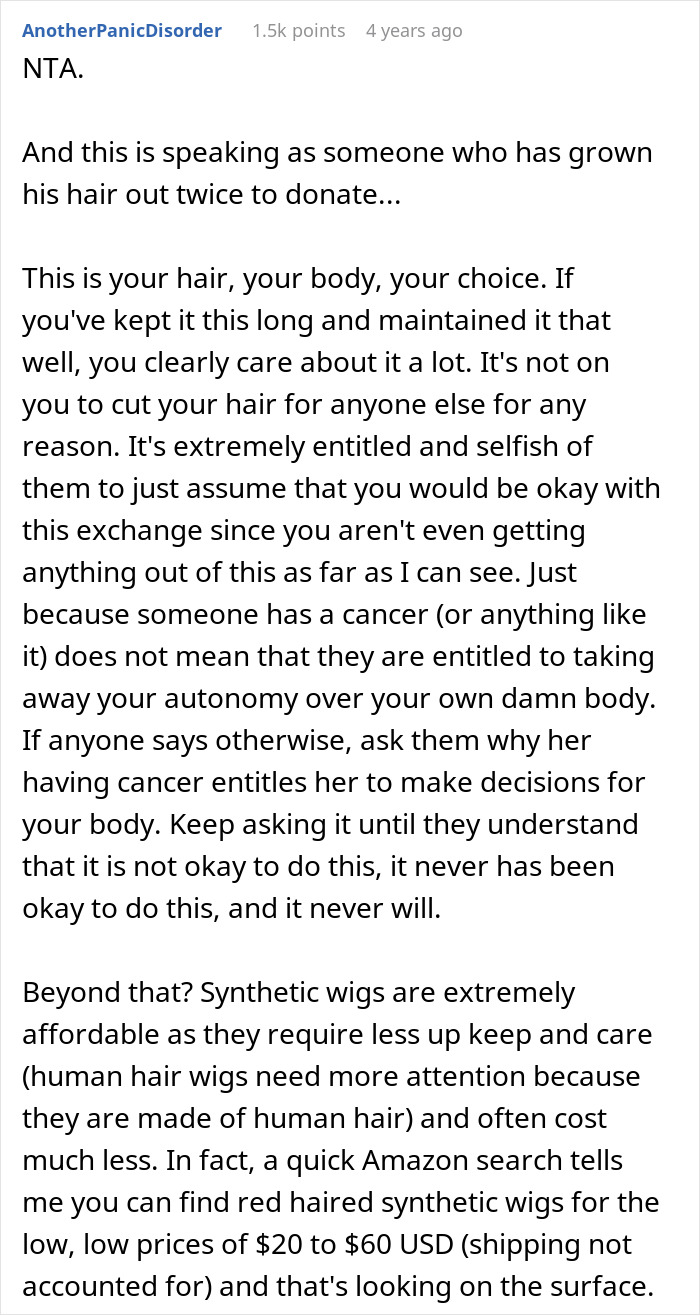
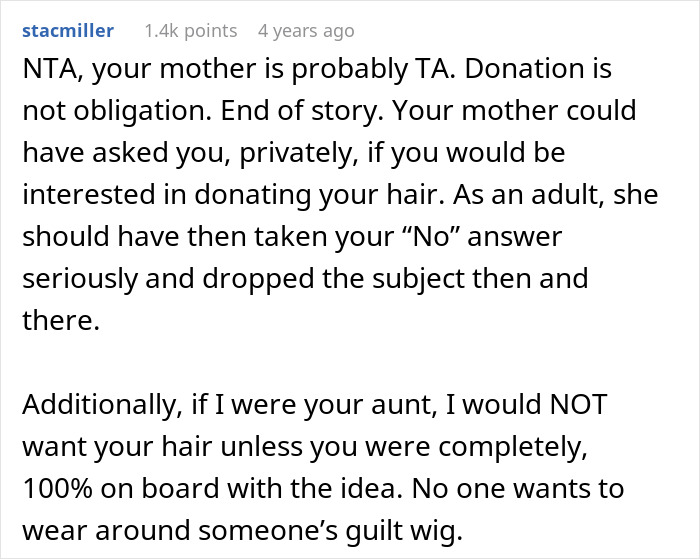
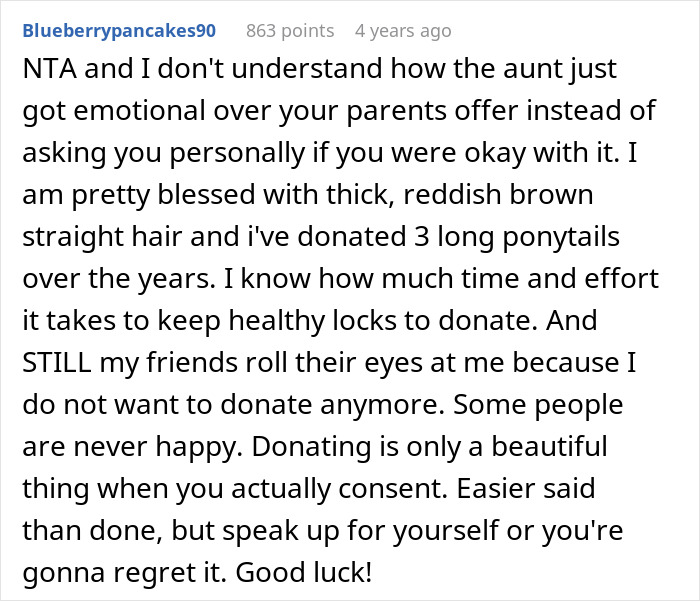
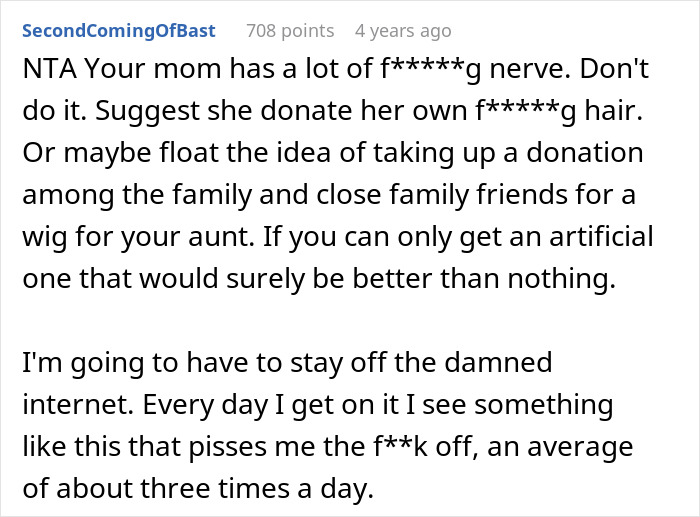
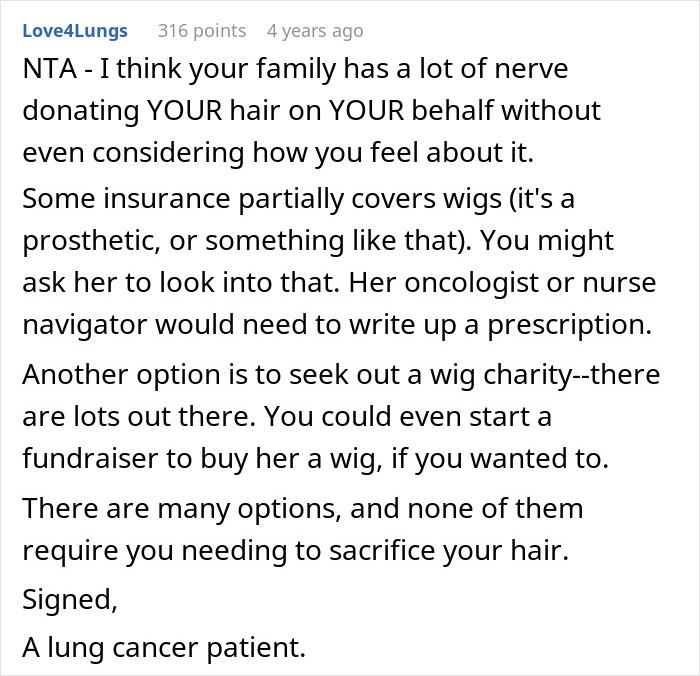

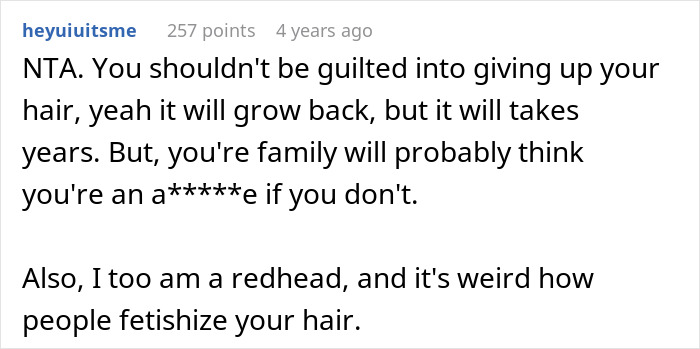
However, some thought the teen was selfish for refusing to donate her locks
